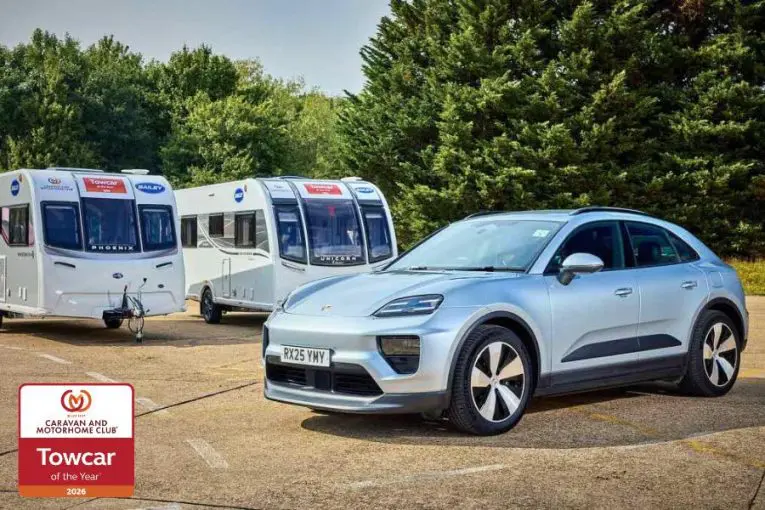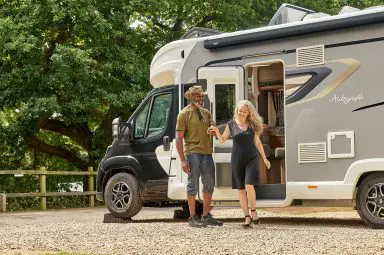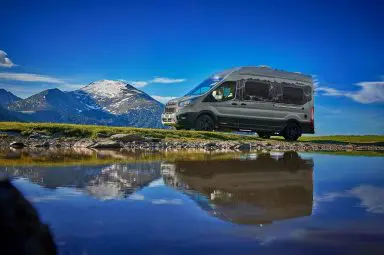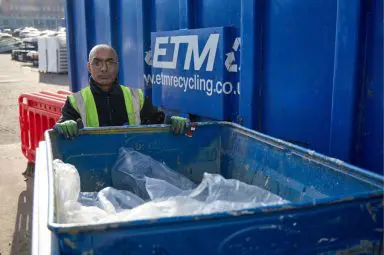Can Electric Cars Tow Caravans? The 17 Best EV Tow Cars for 2026
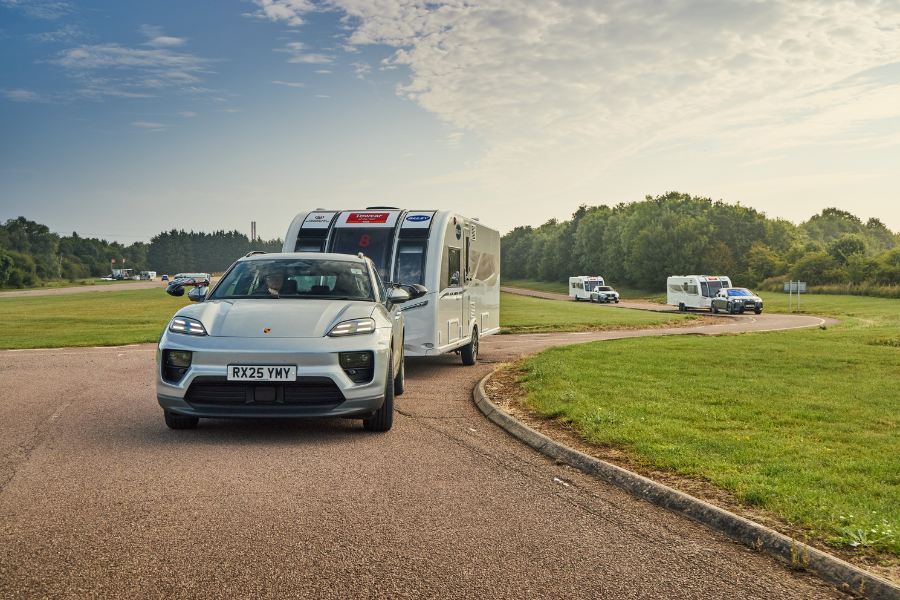
Much debate surrounds the sticky topics of rising fuel costs and the infrastructure required to charge electric cars. I aim to provide an overview of the electric car marketplace, including its towing capabilities for larger caravans and the process of recharging while towing. Other fuel types may be adopted, but for the purposes of this article, I’ll concentrate on electricity.
Towing with a Tesla Model 3
In 2021, I borrowed a Tesla Model 3 and a Bailey Discovery D4-2 for a real-life caravanning weekend to better understand towing a caravan with an electric car. At the time, few EVs could tow a family-sized, heavy caravan, but the 995kg Discovery D4-2 gave me a greater insight into the advantages and disadvantages of towing with an electric vehicle. Thanks to the Caravan and Motorhome Club’s Towcar of the Year competition, I’ve since tested numerous new electric cars that are more than capable of towing a wide variety of Bailey caravan models.
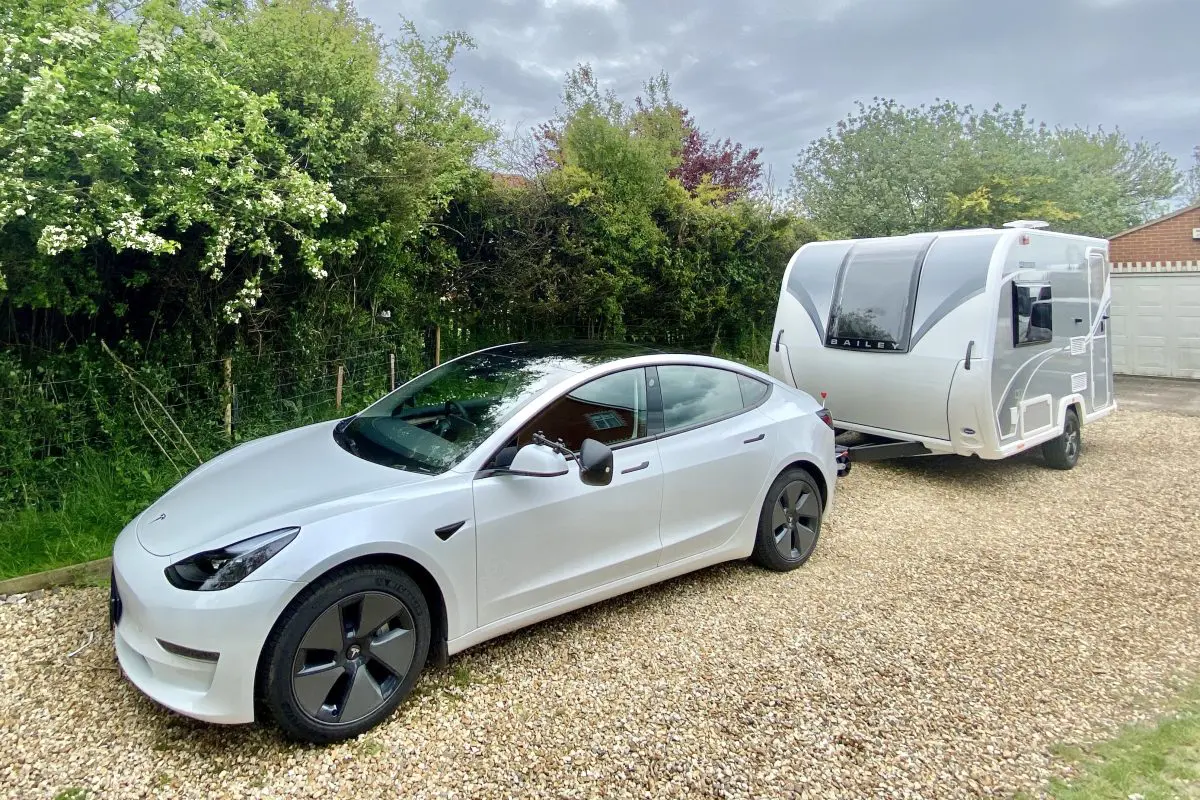
Towing a caravan with an electric car can be a polarising topic, so I’ll be playing devil’s advocate, discussing the advantages and disadvantages of towing a caravan with an electric car, including how towing can affect range, and the practicalities of charging while on the move.
For balance and transparency, it’s worth mentioning that I regularly drive vehicles from the 1930s to the present day, with my current tow vehicle being a Mercedes Vito diesel. I aim to provide a balanced view of towing a caravan with an electric car based on research, interviews, and personal experience. I’ll also share the experiences of EV caravanner Toby Rees, who tows his Bailey Unicorn with a Polestar 2.
Which electric cars are best suited to towing in 2026?
Back in 2024, just seven fully electric cars featured in the Caravan and Motorhome Club’s Towcar of the Year competition. Fast forward to 2026, and there are now 17 fully electric contenders — a clear sign of how quickly EV towing technology is evolving.
All of the cars below were matched with caravans that reflected their towing limit, with weight and ballast carefully checked by AL-KO technicians and the Club’s technical team.
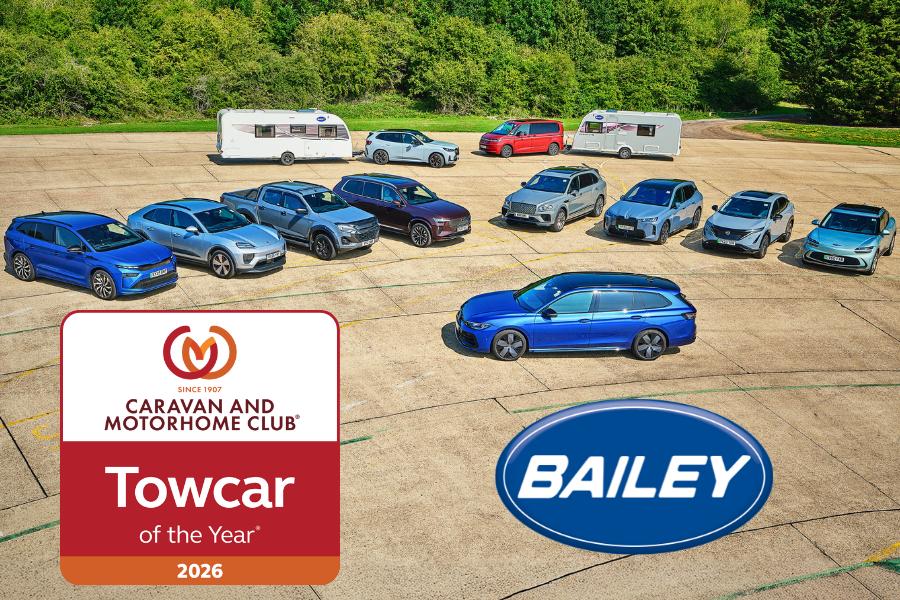
2026 fully-electric tow cars, including towing capacity
Thanks to The Caravan and Motorhome Club’s Towcar of the Year 2026 competition, I was able to test each of the following vehicles on a high-speed circuit (similar to a multi-lane motorway) and a hill route. I also tested each outfit’s reversing performance.
The following weights are either the car’s maximum towing capacity or 85% of its kerb weight, whichever is lower. With electric vehicles often being heavier than their traditional petrol or diesel counterparts, 85% of an EV’s kerb weight is often higher than its towing limit.
This list contains a broad spectrum of pure electric vehicles, from smaller, everyday cars to medium/large-sized electric SUVs. As this page is dedicated to electric-only vehicles, I haven’t included hybrid variants.
During the towing process, each car contained loads comparable to luggage and passengers carried on a family holiday. Underneath each vehicle is the Bailey caravan model(s) that it can tow.
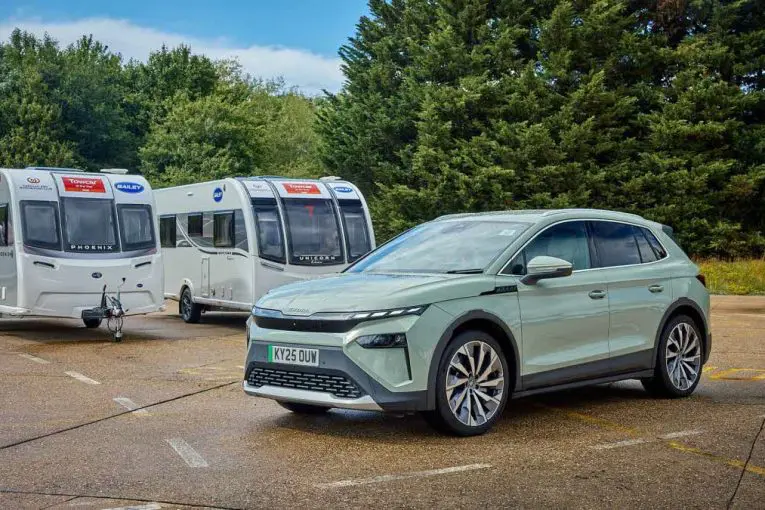
SKODA Elroq 85 Edition – 1000kg
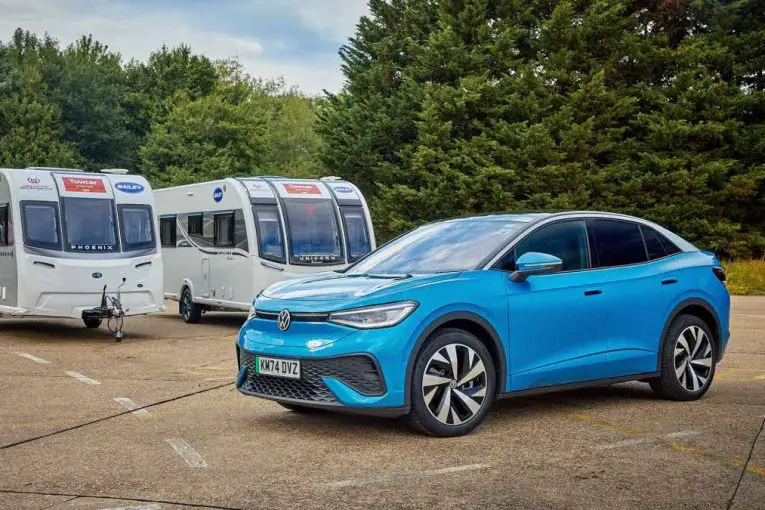
Volkswagen ID.5 Match Pro 77kWh 286PS – 1000kg
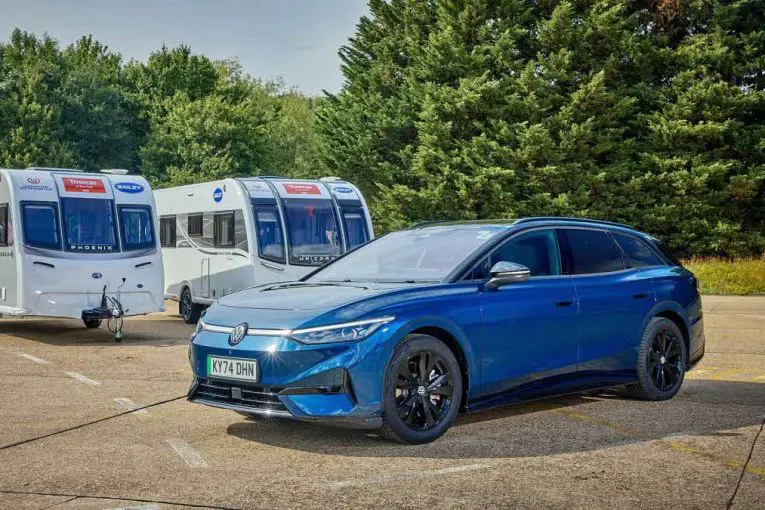
Volkswagen ID.7 Tourer Pro S 86kWh 286PS – 1000kg
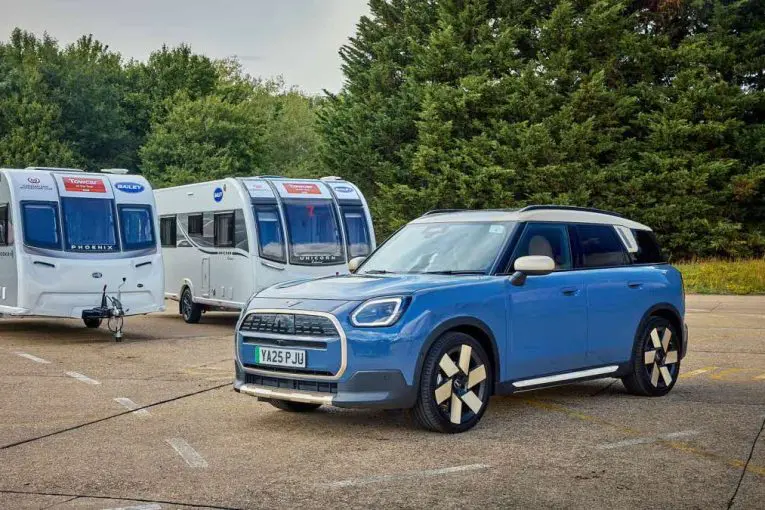
MINI Countryman Exclusive E – 1200kg
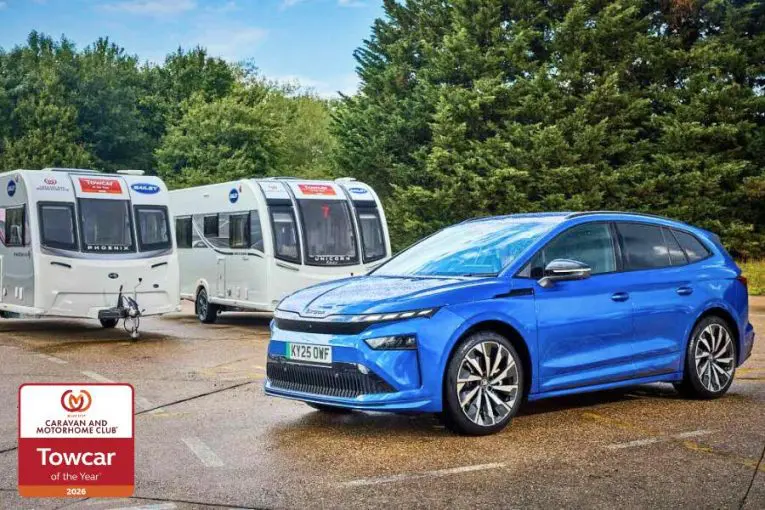
SKODA Enyaq SportLine 85x 82kWh 4x4 – 1200kg
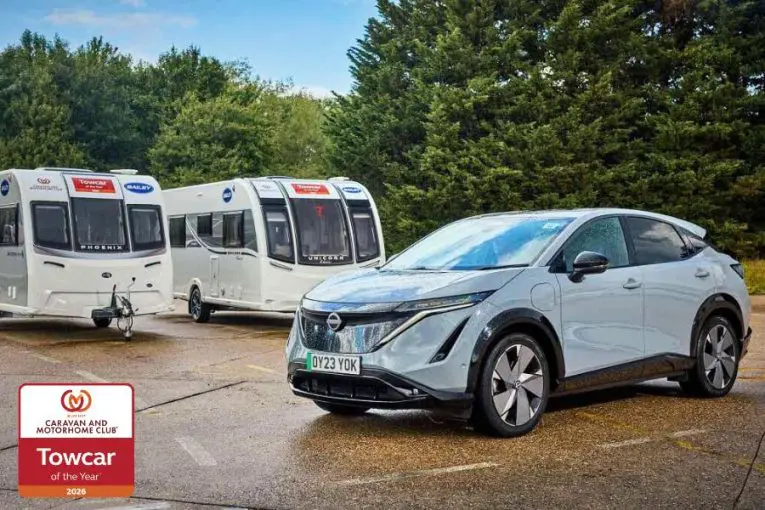
Nissan ARIYA e-4ORCE EVOLVE 87kWh – 1500kg
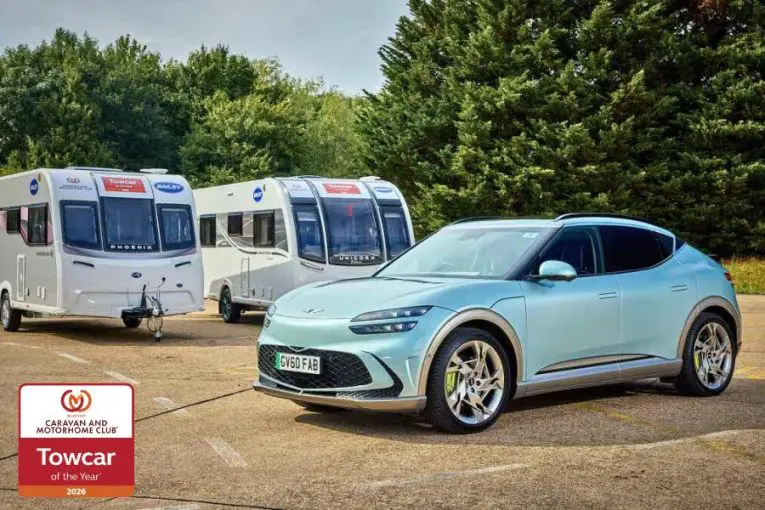
Genesis GV60 Sport Plus – 1600kg
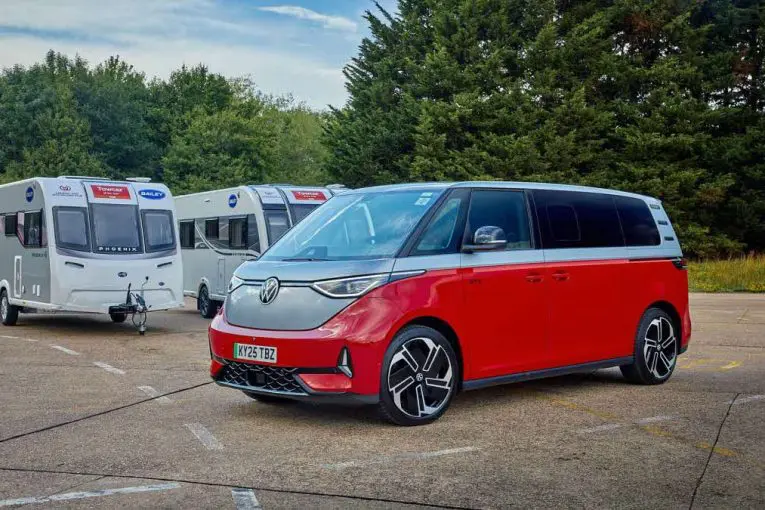
Volkswagen ID. Buzz GTX 4MOTION LWB 7-seat – 1600kg
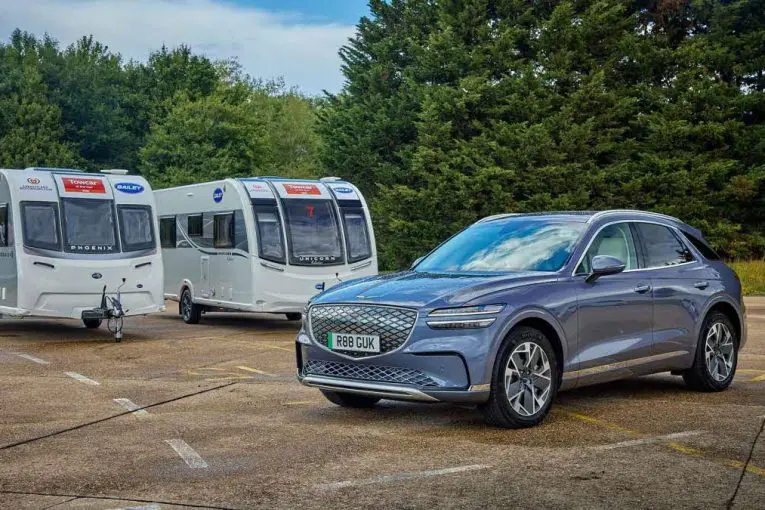
Genesis Electrified GV70 – 1700–1800kg
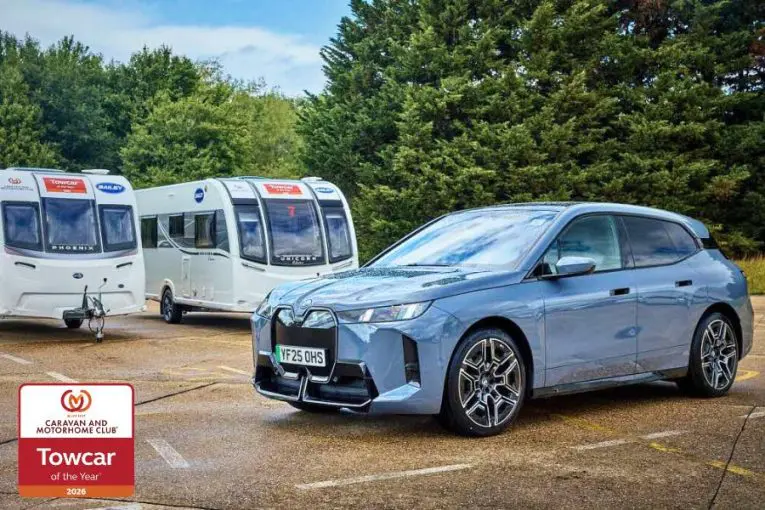
BMW iX xDrive60 M Sport – 2193kg
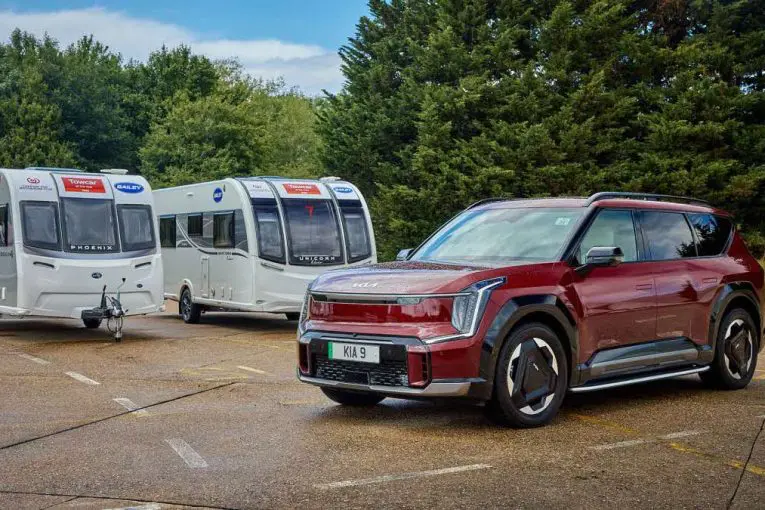
Kia EV9 GT-Line AWD – 2315kg
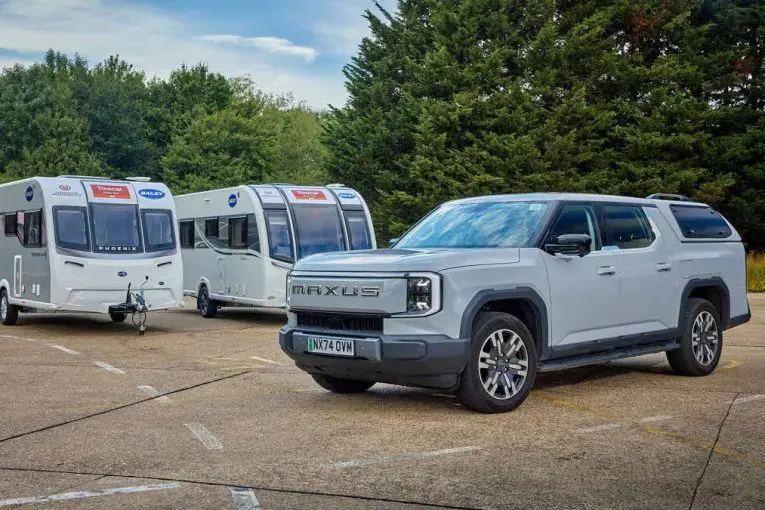
Maxus eTERRON 9 – 2488kg
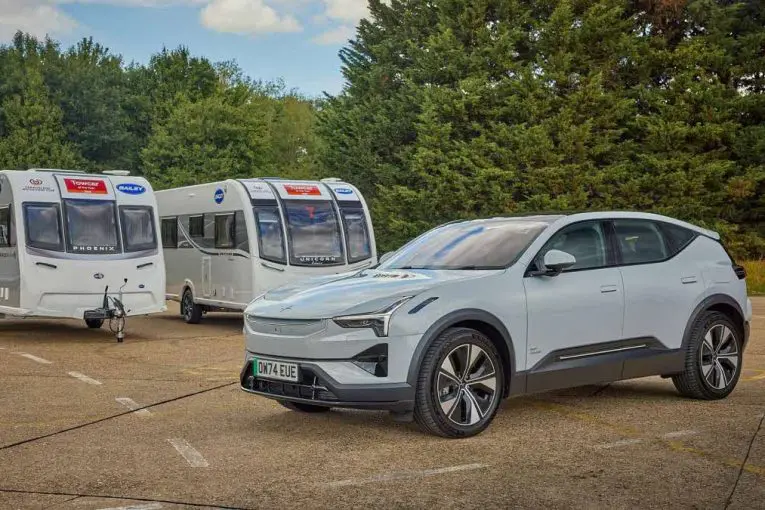
Polestar 3 Long Range Dual Motor – 2200kg
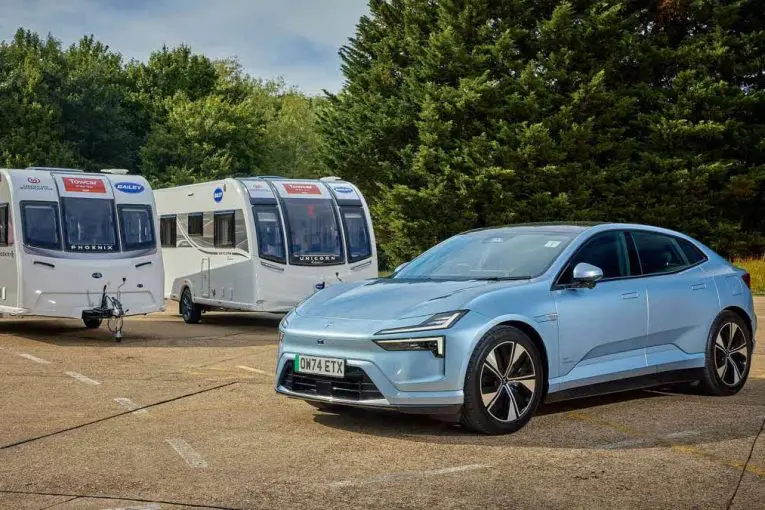
Polestar 4 Long Range Dual Motor – 2000kg
With the batteries housed low in the car, it feels like any input from the caravan — side winds or turbulence from lorries and larger vehicles — is transmitted directly from the tow ball to the battery pack itself. This low centre of gravity makes for a well-mannered tow car, while turbine-like power delivery also plays a huge part.
Acceleration from an electric tow car is brisk – with or without a caravan – and if you’d like more oomph when accelerating from a slip road or performing a steep hill start, the powertrain makes it instant. This is a huge benefit when compared to petrol or diesel cars.
There are many factors to consider here, such as weather conditions (including wind and temperature), caravan size, and payload. However, as an approximate guide, the range when towing is around 50% of the solo figure. Aerodynamics on dual carriageways and motorways play as significant a part as does the stop/start nature of towing a caravan in traffic. This is broadly representative of all car and caravan combinations.
Using my diesel Mercedes Vito as a comparison, the MPG when towing is approximately 57% of the solo figure. Early findings in 2026 suggest this 50% range reduction still applies, even as battery and electric motor technology improves. However, I’m sure energy use or ‘fuel efficiency’ will change in the very near future.
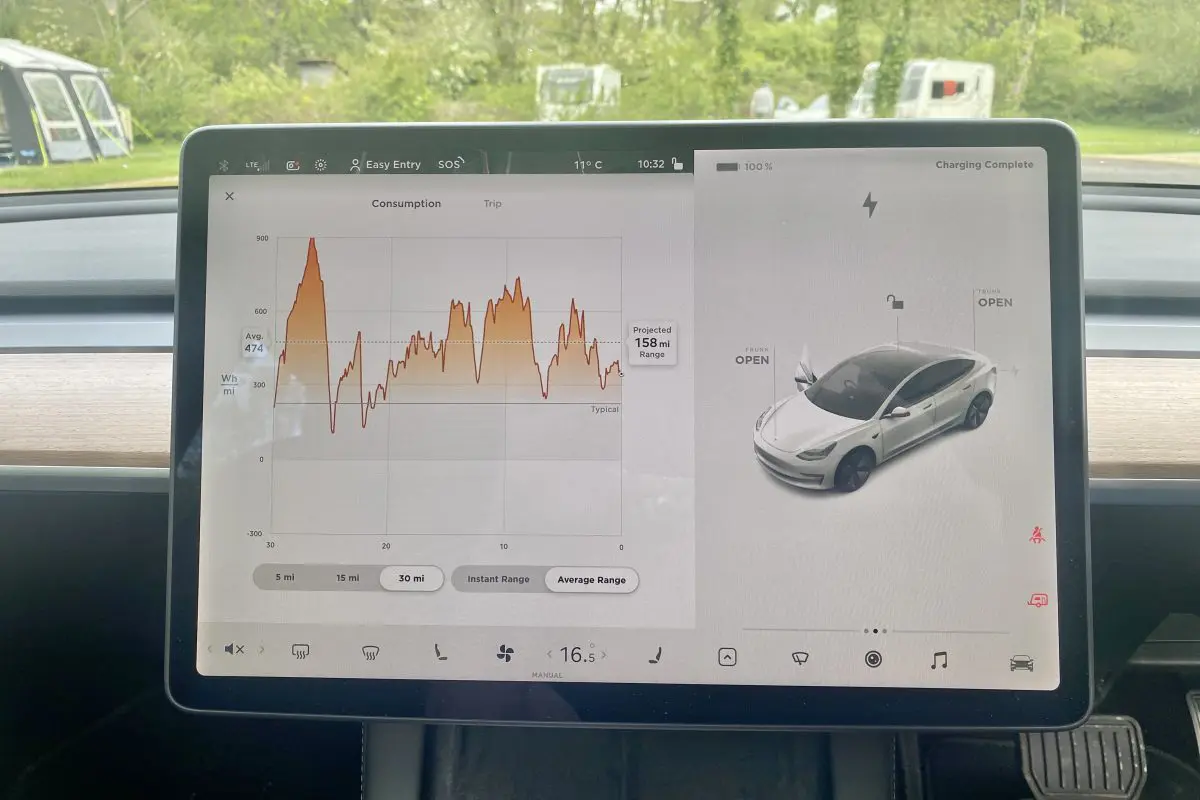
A few charging stations throughout the UK now allow caravanners to charge without unhitching, although this type of facility remains limited. Instavolt has a hub near Winchester with drive-through bays, which enable users to charge their car with the caravan attached. For the most part, caravans must be unhitched (and locked) before your electric vehicle can be topped up at the charging point.
The Tesla Supercharger network can speed up the charging process, as long as your car is compatible.
Yes. In fact, charging your electric car from your pitch (via the caravan’s 3-pin, 230v circuit) is the method recommended by the Caravan and Motorhome Club’s Technical Department.
The NCC have produced a guide to towing with an EV which you can download below
Towing Electric by EV Caravanner, Toby Rees
Our Bailey journey began in 2009 with a Pageant S7 Bretagne, towed with a Volvo XC90 D5 — an excellent family combination. When the kids outgrew the triple bunk, we moved to a Bailey Pegasus Ancona with its separate shower – a nice upgrade, and we stuck with the big Volvo tug.
In 2016, our beloved Ancona was stolen, and with no suitable equivalent on the market and the children getting ready to move on, we purchased a Bailey Unicorn S3 Vigo. Soon after, we added a Volvo V60 D6 PHEV as an alternative tow car, but that burst of electrical power was addictive.
By the end of 2020, I could move to an EV through a company car scheme, which was too good an opportunity to miss. The Polestar was ordered with the factory-fit, semi-automatic tow bar, plus the accompanying stability program and towing aids (trailer light check, reversing camera towbar view).
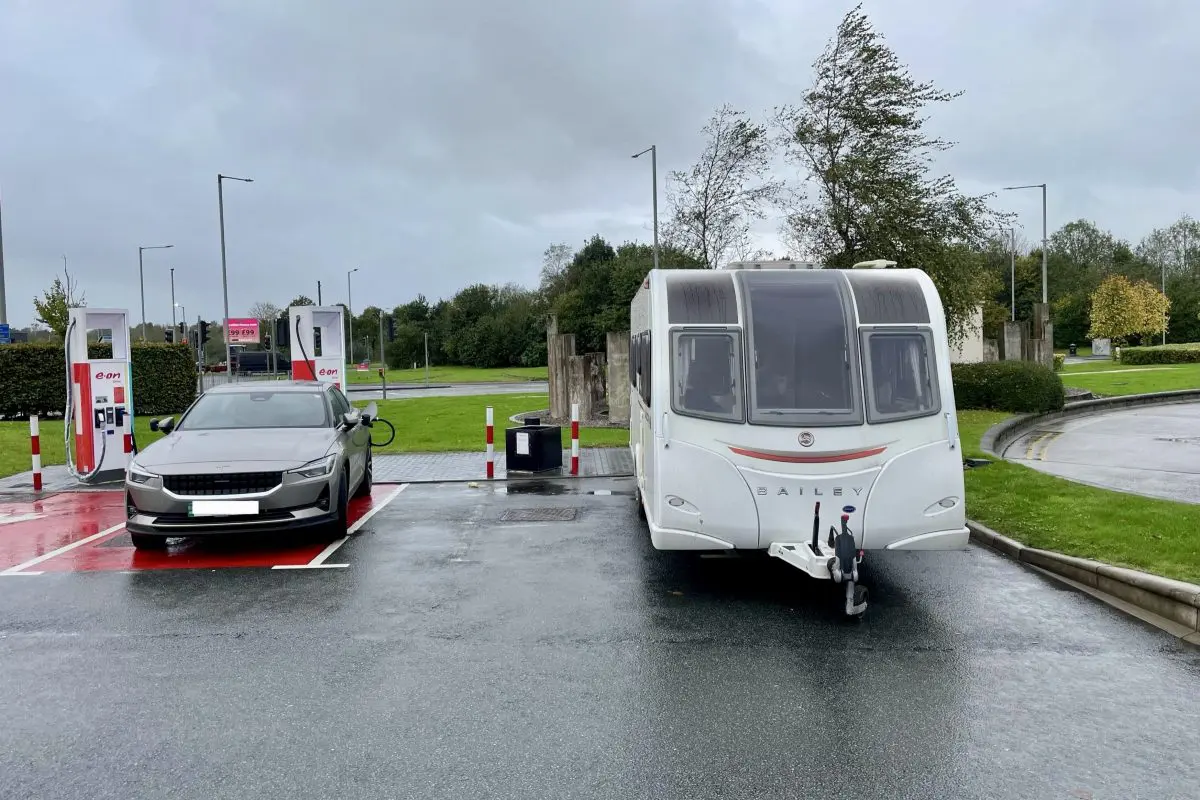
As anyone who has towed will tell you, an automatic gearbox and low-down torque are key when manoeuvring and getting up to speed, and – as anyone who has towed electric will say to you – this is where EVs excel. With no gears and 650Nm of torque, the Polestar is a superb towcar.
Our first trip, just two days after the Polestar arrived, was 40 miles from home. It was a taste of things to come. Our third trip, 260 miles to our favourite site in the Lake District, was much more of a real-world adventure. With considered driving, the Polestar delivers between 130 and 140 miles while towing on a full charge, which is further than we can go without a comfort break.
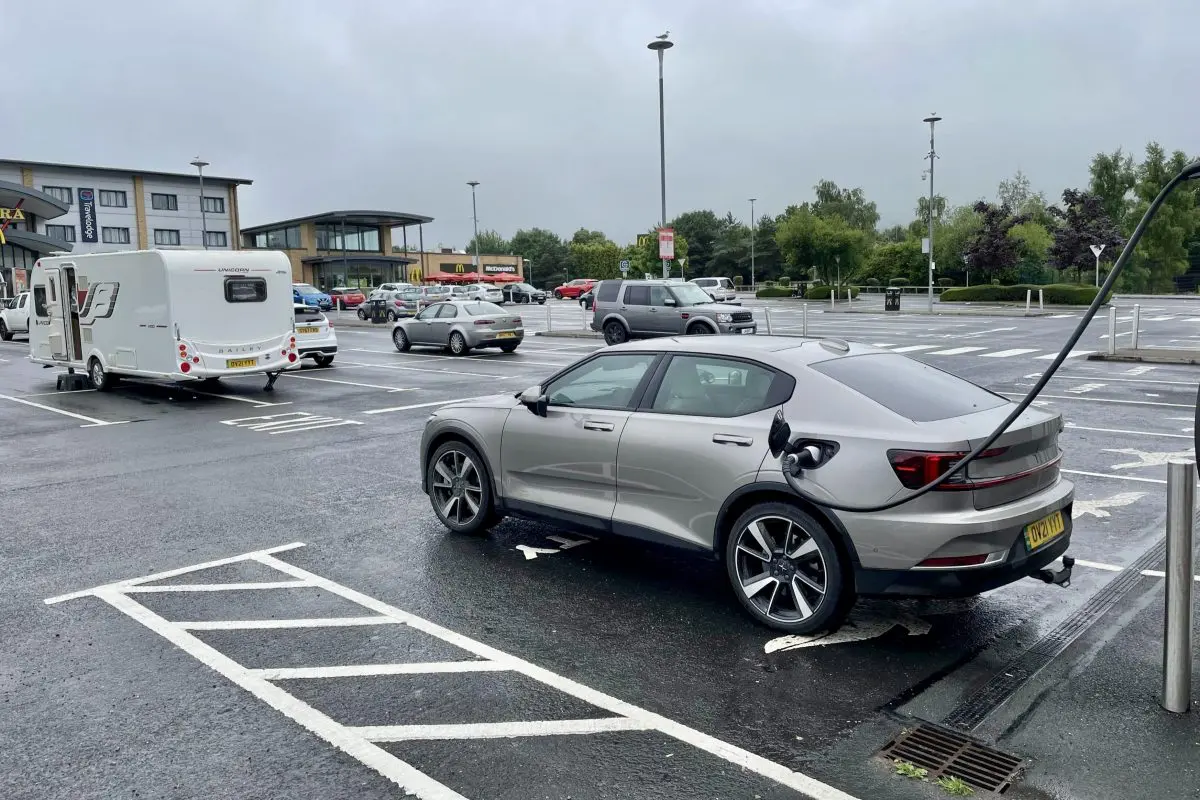
Stopping at motorway services gave us time to recharge both ourselves and the car before arriving at our destination. The usual five-hour journey was extended by 40 minutes, but we felt more refreshed because of it.
Having spent a season towing over 1600 miles to Brecon, Whitby, Buxton, and the Lakes, we are hooked. With ultra-rapid chargers now far more common, towing with an electric car around the UK is proving ever more practical.
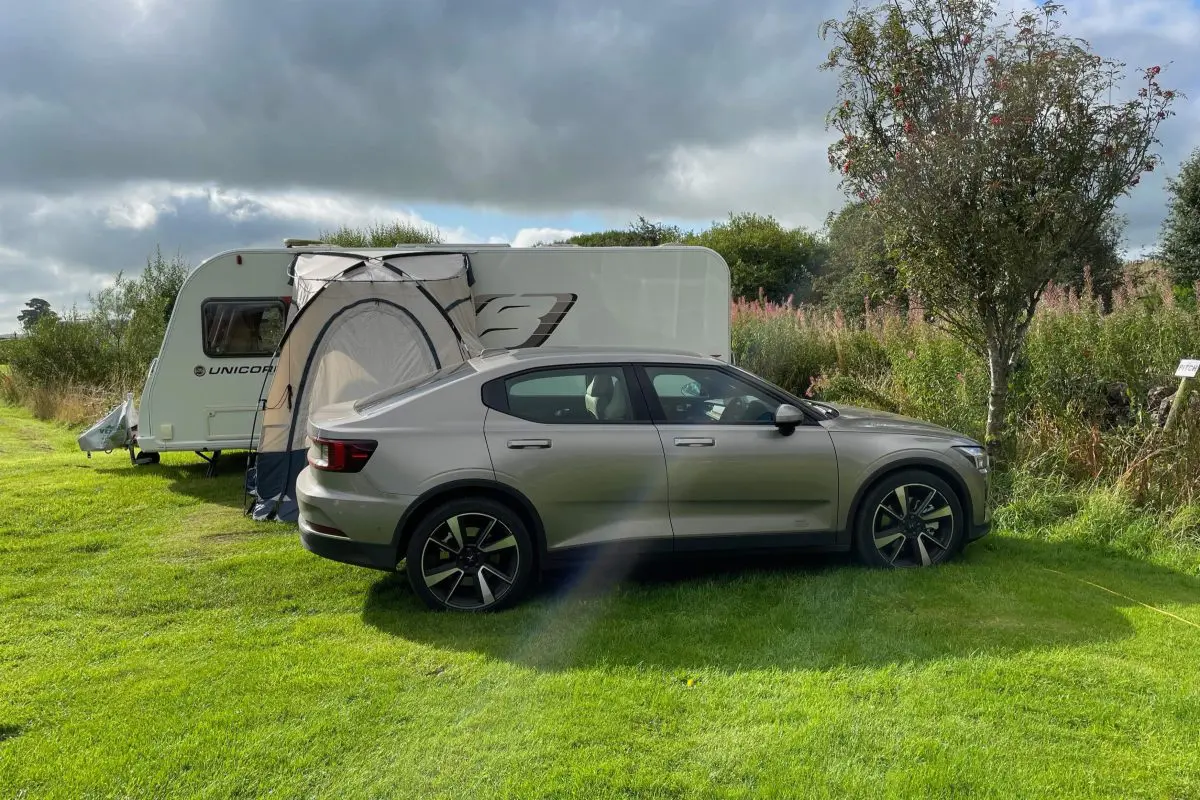
Is it possible to tow a caravan with an electric car?
Much like any other car, an electric vehicle can only tow a caravan if it has sufficient towing capacity. As the 2026 Towcar of the Year awards show, there are now EVs rated from 1000kg right up to nearly 2500kg, covering everything from lightweight tourers to Bailey’s largest Alicanto Grande models.
Conclusion
By 2026, EVs will be proving themselves more capable than ever as tow cars. With 17 fully electric entrants in the latest Caravan and Motorhome Club Towcar of the Year awards, it’s clear the industry has embraced electric power.
Long-distance European touring still requires more planning than with a diesel, but for UK trips and considered towing holidays, EV caravanning is now a realistic option for families and couples alike.
Previous
Can You Tow a Caravan with a Tesla?
Next
News & Events
Latest news & events
See all news & eventsCampbells Caravans & Motorhomes Weekend Showcase
WATKIN LANE, LOSTOCK HALL, PRESTON, LANCASHIRE
Three Counties 4 Day Easter Eggstravaganza
MAIN A31
DORCHESTER ROAD
WIMBORNE
DORSET
